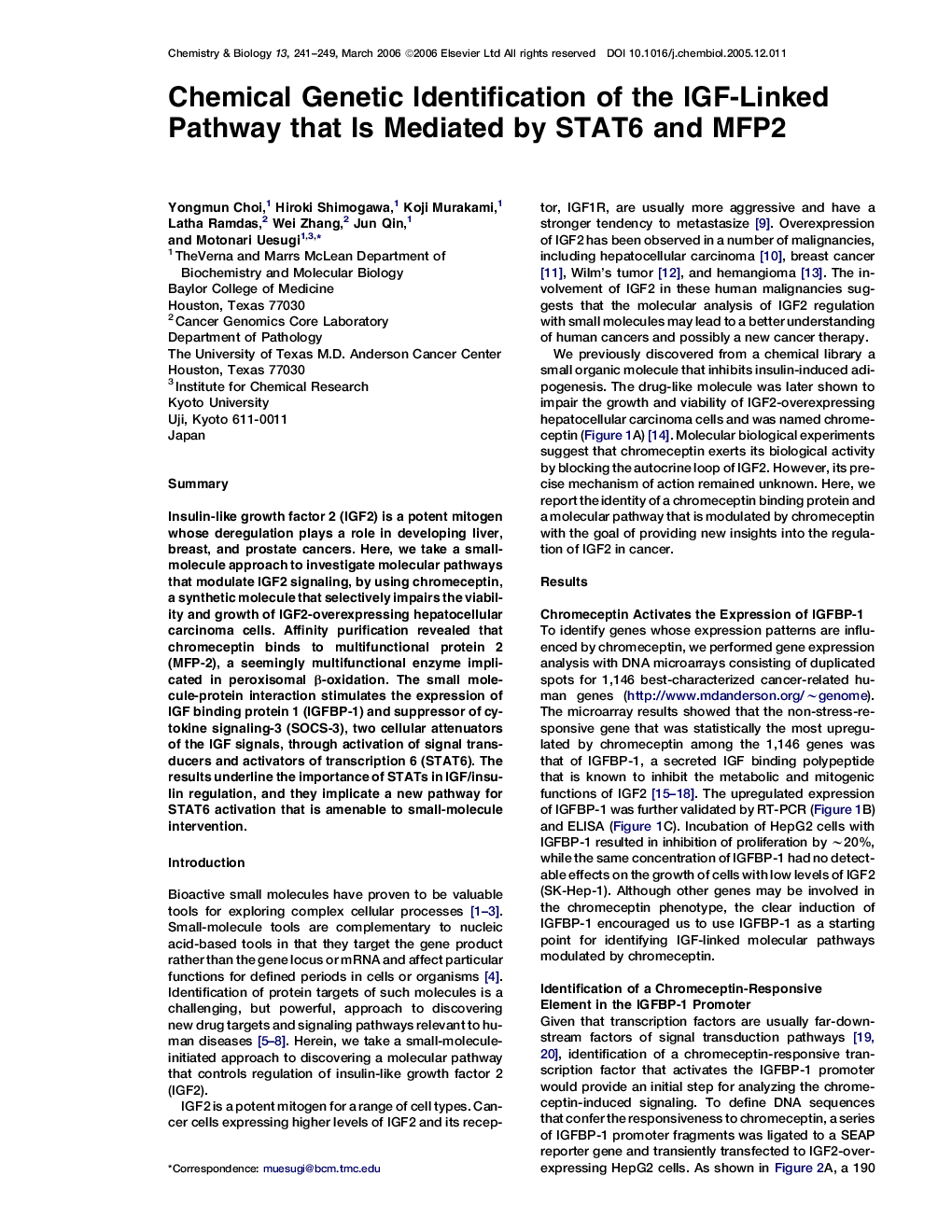| Article ID | Journal | Published Year | Pages | File Type |
|---|---|---|---|---|
| 1391831 | Chemistry & Biology | 2006 | 9 Pages |
SummaryInsulin-like growth factor 2 (IGF2) is a potent mitogen whose deregulation plays a role in developing liver, breast, and prostate cancers. Here, we take a small-molecule approach to investigate molecular pathways that modulate IGF2 signaling, by using chromeceptin, a synthetic molecule that selectively impairs the viability and growth of IGF2-overexpressing hepatocellular carcinoma cells. Affinity purification revealed that chromeceptin binds to multifunctional protein 2 (MFP-2), a seemingly multifunctional enzyme implicated in peroxisomal β-oxidation. The small molecule-protein interaction stimulates the expression of IGF binding protein 1 (IGFBP-1) and suppressor of cytokine signaling-3 (SOCS-3), two cellular attenuators of the IGF signals, through activation of signal transducers and activators of transcription 6 (STAT6). The results underline the importance of STATs in IGF/insulin regulation, and they implicate a new pathway for STAT6 activation that is amenable to small-molecule intervention.
